One pattern I’ve noticed as people celebrate Juneteenth is the tendency to skip past slavery and rush to emancipation.
Many people in the United States are quick to gloss over the unpleasantness of human bondage and simply celebrate the freedom that came afterwards.
James Baldwin got it right when he said,
“It is worthwhile to point out that for most Americans slavery is quite remote and America herself would really prefer that we remained dispassionate about it. Well I, for one, will never be dispassionate about slavery or any other unforgivable atrocity committed against humanity.”
You can’t appreciate the joy of Juneteenth unless you understand the sorrow of slavery.
I think the actual day of Juneteenth should be one of joy and exuberance. Leading up to Juneteenth, however, we should take a few moments to remember the crushing reality of slavery.
Your tax-deductible gift helps our journalists report the truth and hold Christian leaders and organizations accountable. Give a gift of $30 or more to The Roys Report this month, and you will receive a copy of “What If Jesus Was Serious about the Church?” by Skye Jethani. To donate, haga clic aquí.
This isn’t about being morbid or making a spectacle of human suffering. It is about honoring the history, the full history, of Black freedom by recognizing the bondage that prevented it for so long.
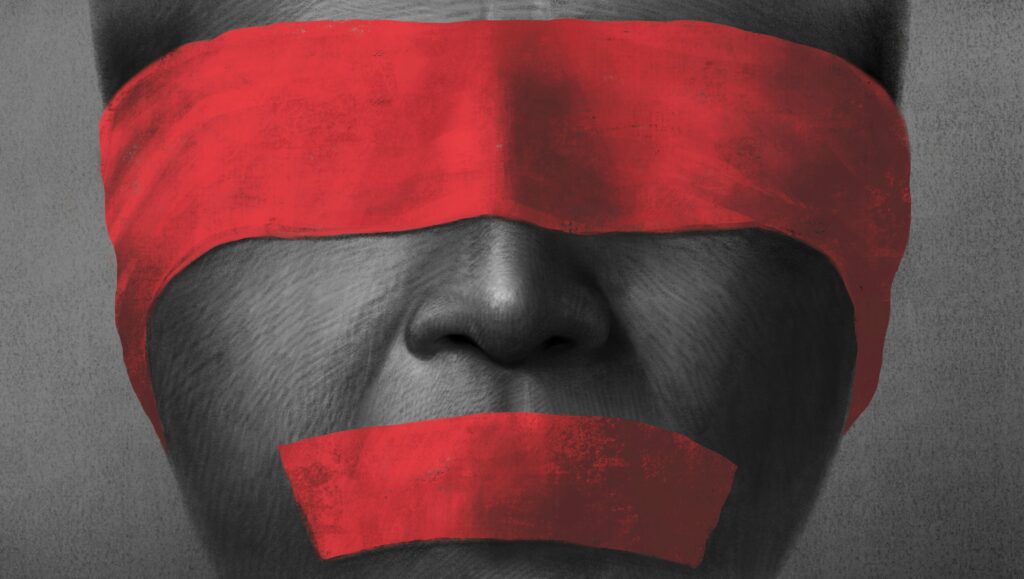
O, Ye Nominal Christians!
In my first book, The Color of Compromise, I talk about the story of Olaudah Equiano.
He was an African born in the Igbo region of Nigeria around 1745, but he was stolen into slavery at a young age.
He later gained his freedom, and he wrote an autobiography called The Interesting Narrative of the Life of Olaudah Equiano; or, Gustavus Vassa, the African, Written by Himself (1789).
In that book he explains the experience of waiting on the coast of the Atlantic in a prison called a “factory”—essentially a holding pen for Africans while they waited for slave ships to fill up and begin crossing the ocean.
“The stench of the hold while we were on the coast was so intolerably loathsome, that it was dangerous to remain there for any amount of time,” he wrote.
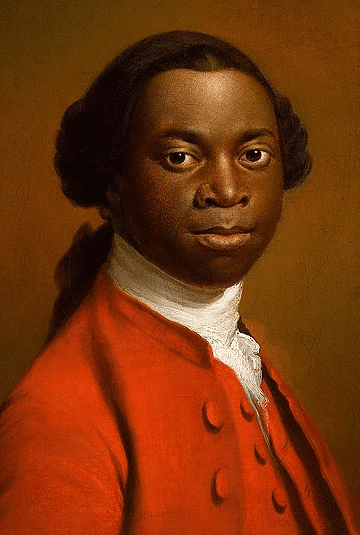
On board the ship, he told of the tubs which held human excrement “into which the children often fell, and were almost suffocated.”
His younger sister was captured with him. They were separated but found each other for a brief instant and “clung to each other in mutual embraces, unable to do anything but weep.”
Yet just as abruptly as they had been reunited, they were sold to different enslavers.
“Scarcely had the fatal morning appeared, when she was again torn from me forever! I was now more miserable, if possible, than before.”
Equiano turned his attention to professed Christians.
“O, ye nominal Christians! might not an African ask you, learned you this from your God, who says unto you, Do unto all men as you would men should do unto you?”
Slavery was family separation.
Do Not Judge the Poor Desolate Slave Girl
Harriet Jacobs was born enslaved in North Carolina in 1813. She also wrote an autobiography and titled it, Incidents in the Life of a Slave Girl.
Jacobs wrote of the constant danger that Black women and girls faced not only as Black people but as Black women.
She explained to her readers the devastating choice she had to make as a teenager–she could either choose rape by her enslaver or voluntarily enter into an affair with a local white man.
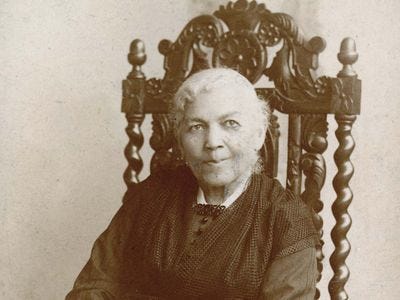
She chose the latter because she hoped the white man would free any children they had. She was sure her enslaver would enslave his own children if they were born of a Black woman.
As she painfully unpacks this “incident” she wrote to her women readers, especially white women, and said:
But, O, ye happy women, whose purity has been sheltered from childhood, who have been free to choose the objects of your affection, whose homes are protected by law. Do not judge the poor desolate slave girl too severely.
She demanded that people acknowledge the way oppression limits your options. She put up a mirror to society and told others not to judge her actions when they have been defended, protected and enjoyed privilege their whole lives.
Long before the term “intersectionality” arose, Harriet Jacobs exposed the perils of being both Black and a woman in a racist and sexist society.
‘Great Pleasure in Whipping a Slave’
We must also speak something of what the practice of slavery did to the enslaver. Absolute power corrupts absolutely.
Slavery was a system where Black people had no rights and were considered inferior. White people succumbed to the lie that there were a superior race and entitled to complete control of others.
This kind of myth and power twisted the soul of the enslaver.
As Frederick Douglass put it, “No man can put a chain about the ankle of his fellow man without at last finding the other end fastened about his own neck.”
In Douglass’ autobiography he wrote of an enslaver named Captain Anthony and the brutality he used, sometimes simply for the amusement he got from it.
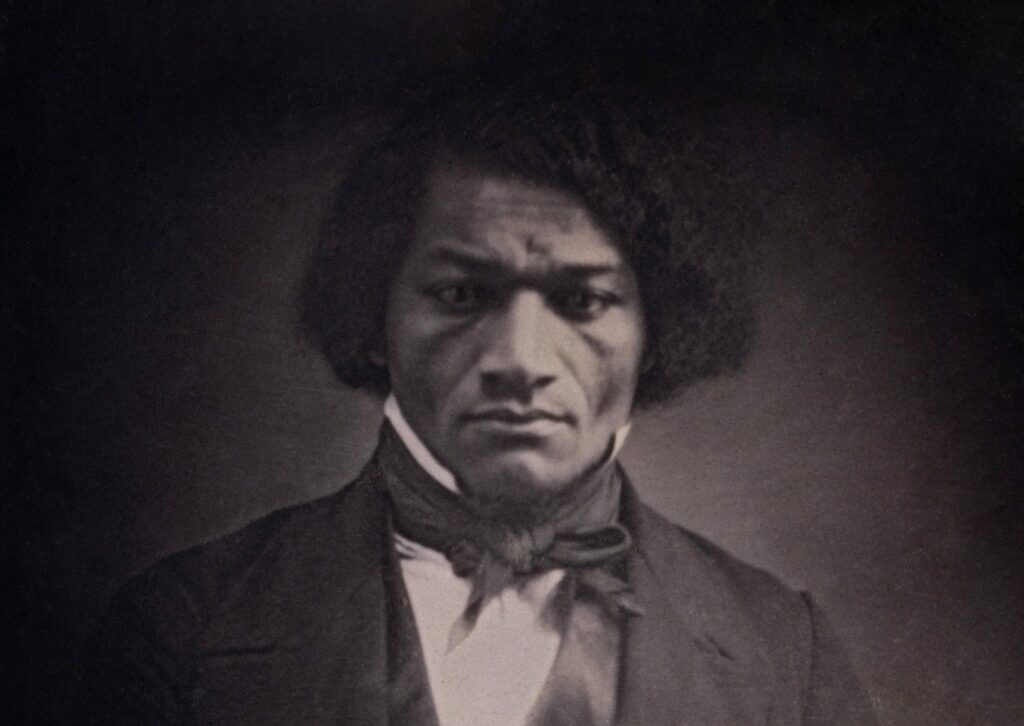
[Captain Anthony] would at times seem to take great pleasure in whipping a slave. I have often been awakened at the dawn of day by the most heart-rending shrieks of an own aunt of mine, whom he used to tie up to a joist, and whip upon her naked back till she was literally covered with blood. No words, no tears, no prayers, from his gory victim, seemed to move his iron heart from its bloody purpose.
Douglass continued,
The louder she screamed, the harder he whipped; and where the blood ran fastest, there he whipped longest. He would whip her to make her scream, and whip her to make her hush; and not until overcome by fatigue, would he cease to swing the blood-clotted cowskin. I remember the first time I ever witnessed this horrible exhibition. I was quite a child, but I well remember it. I never shall forget it whilst I remember any thing.
You’ll sometimes hear the myth of the “happy slave” or comments that enslavement benefitted Black people—they knew their place; they had food, clothes, shelter, and work; they became Christians.
There is no sense in which Black people were better off or happy under slavery. These descriptions should put to rest any such notions.
Race-based chattel slavery deprived people of African descent of life, liberty, and the pursuit of happiness. Thankfully, through the sacrifices, prayers and the spirit of justice in countless people, slavery was abolished in this nation.
To fully appreciate the progress that Juneteenth represents, we also have to sit with the reality of the slavery that made it necessary.
This commentary originally appeared at notas al pie y ha sido reimpreso con permiso.
 Jemar Tisby, PhD, profesor de historia en Simmons College of Kentucky, escribió “El color del compromiso” y "Cómo luchar contra el racismo”. He frequently writes about race, religion, and politics in his newsletter, “notas al pie.”
Jemar Tisby, PhD, profesor de historia en Simmons College of Kentucky, escribió “El color del compromiso” y "Cómo luchar contra el racismo”. He frequently writes about race, religion, and politics in his newsletter, “notas al pie.”





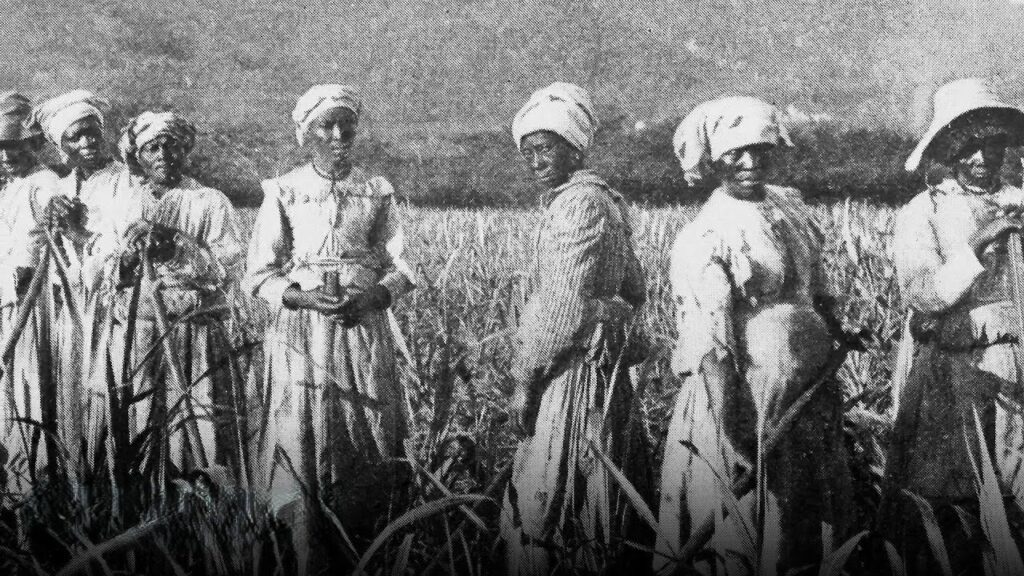
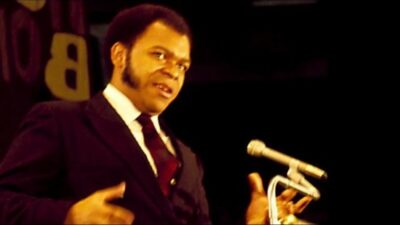


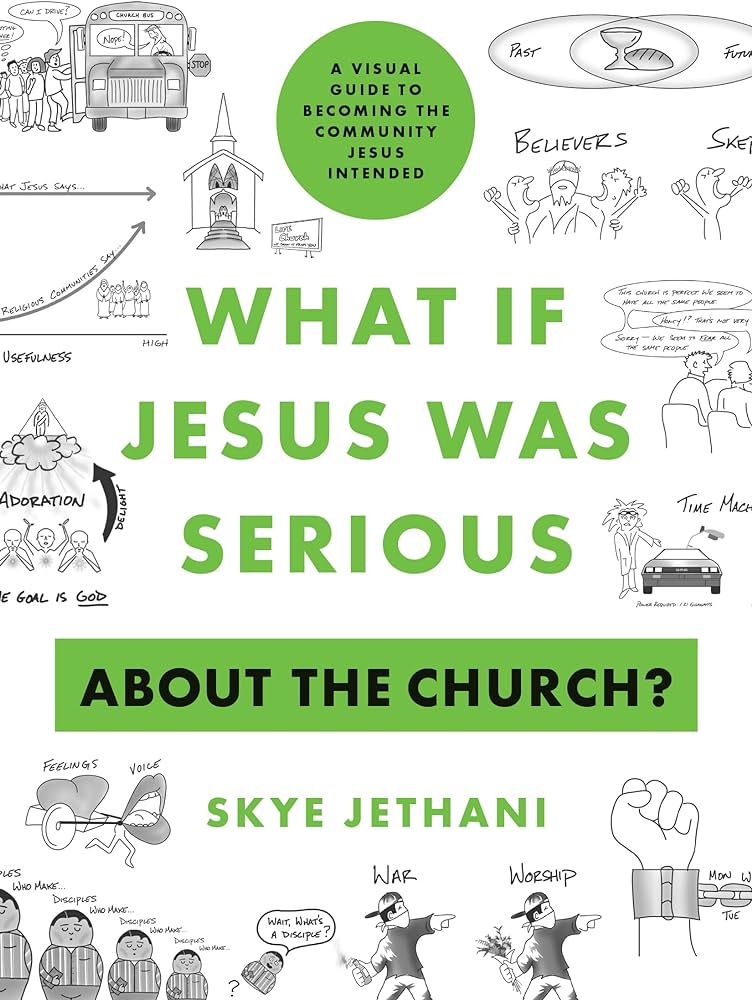


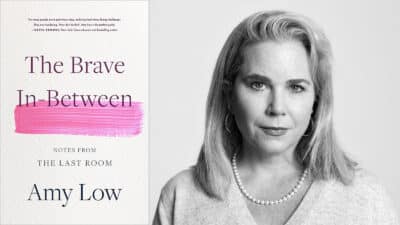







27 Respuestas
Thank you for this. It served as a great analogy and reminder of how grateful I am for my salvation when I fully understand how lost and caught up in the bondage of sin I was before knowing Christ. And everytime I am tempted to be prideful or self-righteous, I am to be reminded of who and where I was before the Lord found me.
We were a mess as a nation. We shouldn’t skip over it, downplay it, deny it, or deflect it with “whataboutisms”. We need to FULLY undertand it. Then the testimony of “But God….” will shine brighter and brighter, prayerfully giving us hope of what can happen if we return to Him from the current mess we are in.
Slavery, another topic much addressed in scripture. I find that slavery much like patriarchy was a product of fallen human nature; the inborn ‘yetzer hara’, man’s evil inclination. It was not YHVH’s original intention in creation. Even so, YHVH made provisions for owning slaves (=indentured servants) and gave laws on how to treat them ethically and morally.
Caveat: in ancient east/Israel, it was really indentured servitude, which was quite different than the American slave history. It was also not based on skin colour as they were all ‘dark/olive’ skin then. Yet, the wickedness of man have twisted scripture to justify slavery.
Slavery as mentioned in the bible shows that bible truly is a product and reflection of its time, people, and culture. Something we must bear in mind before interpreting and applying scripture to our times. Paul the apostle admonished obedience of slaves to masters. Yet you rarely find anyone openly advocating for slavery as they do in silencing women by 1 or 2 passages. Why is that? Hm.
Thankfully, slavery was/is recognized as egregious assault to basic human rights, and contrary to Christian ethos. However, just like patriarchy, modern day slavery is alive. The superiority complex still thrives in covert forms. Although in recent climes, more overt forms are seen.
That HaShem allowed for human slavery/servitude ultimately pointed to our slavery/bondage to sin and freedom in Yeshua. In Yeshua ALL are equal and are made free. The freed become slave to Christ; the slave became freed in Christ. The critical bit is that Yeshua came to set us free from slavery of sin. And whom the SON sets free is free indeed. Amen.
Seraphina, thanks for your thoughts. I’d like to add just a couple of thoughts, regarding “slavery” in the Bible.
One, as said, ‘chattel slavery’ is considerably different from ‘indentured servitude’. In the former, you own the person and their progeny in perpetuity. In the latter, the ‘servant’ is the one doing the selling. You only own their labor (usually for a finite time) not the person or their family members. Indentured servitude is still legal in many forms, and in many nations including the US. Chattel slavery (kidnapping a person against their will or trafficking a kidnapped person) was an act punishable by death under the Mosaic Law (Exodus 21:16).
Two, regulation does not mean approval or endorsement. God, in His wisdom, chose to address the issue of servitude right after (Exodus 21) the Ten Commandments (Exodus 20). Why? Seems like it was high on His list of issues, and because servitude can quickly get exploitative and oppressive. Mosaic laws regarding servitude exist as guardrails to curb abuse, not sanction or support the practice. For example, the Mosaic Law included divorce (Deuteronomy 24:1-4). But when the Pharisees argued that Moses accused Moses legalized and sanctioned divorce, Jesus quickly set them straight (Matthew 19:7-8).
Thank you, Dr. Tisby, for this stark reminder of the stain on American history that is slavery. I rarely feel compelled to express gratitude like this for articles I read on the internet but this piece is important. I’m grateful it has been written.
Oh my goodness- so well said! Heartbreaking but so important to spend time in these tragic stories.
Thank you for such a thoughtful article
Frederick Douglas’s story of his aunt and Captain Anthony is hard to read, the cold and lifeless cruelty of evil. For all that’s changed since then, the things that are meant to advance us, I wonder if that story is a better window to view the nature if this world. I read the story and want to look away, but maybe refusing to look away, I’ll see more clearly. Thanks for posting this.
I agree. But what is even more heartbreaking is that those who name the name of Christ may not be any better.
Here is Frederick Douglass, in his own words, about “christian” slave owners: “I assert most unhesitatingly, that religion of the South is a mere covering for the most horrid crimes – a justifier of the most appalling brutality – a sanctifier of the most hateful frauds – and a dark shelter under which the darkest and foulest, grossest, and most infernal deeds of slave holders find the strongest protection. Were I to begin again, reduced to the chains of slavery, next to that enslavement, I should regard being a slave of a religious master the greatest calamity that could befall me. For with all slave holders with whom I have met, religious slave holders are the worst. I have ever found them the meanest and the basest, the most cruel and cowardly of all others. It was my unhappy lot not only to belong to a religious slaveholder, but to live in a community of such religionists.”
Slavery is still practiced throughout the world today. I pray for the millions of victims. The entire country of North Korea is enslaved by its evil leader. The lucky ones spend dawn to dusk looking for grass to eat. The rest are working 7 days a week all their lives starving and sick in factories-raped and physically tortured. Any infraction will lead to 3 generations in concentration camps. Babies born into slavery if not aborted sometimes boiled and eaten. Saudi Arabia actually has ads to sell human beings from one owner to another! In America children and women are sold as sex slaves. Some kept in small cages as the recent news spoke of police rescuing some- others dead. As a nation and as believers of all colors and socio economic backgrounds need to stop focusing on the past and join hands as family to ACT on rescuing the atrocious crimes in our midst!!!!! Otherwise we are guilty of being selfish. My ancestors fought to free the slaves. They were simple people but joined because they knew slavery was wrong. They were brave. Today we need a new kind of bravery that frees slaves of all cultures and ethnicities.
Lorraine –
Your response has its place, but not on this thread. Your response has nothing to do with Juneteenth, which is what this article is about. It actually proves my point: rather than acknowledging the past (and how God delivered us), you prefer to do a “whataboutism” to change the subject and support the narrative YOU want (Juneteenth has nothing to do with North Korea or Saudi Arabia).
Please respect this holiday and stay on topic. When has “whataboutism” EVER solved anything? When has it ever brought healing?
And as believers, we are even told to place “remembrance stones” and share how our God has delivered us to pass faith on from generation to generation. Sounds like your family has similar stories of standing up to fight for the freedom of slaves – spend time reflecting on and honoring that, as many lost their lives over it.
I am a descendant of slaves, and daughter of parents impacted by Jim Crow. My family settled a “freeman’s town”, where we still have property today, and spend this time every year reflecting and passing down stories of how God has always had His hand on us.
To “stop focusing on the past” is to be vulnerable to repeating it and forget all God has done to bring us to this point. No thanks.
Thank you for this article. I shall with God’s help read these books. I stay “with God’s help” because it is so difficult to be in the presence of such pain, but the exposure is necessary to live in truth.
Let us not forget that Juneteenth was only possible because of the sacrifices of millions of Union soldiers, hundreds of thousands of whom paid the ultimate price.
Marca -
While I believe your comment means well, it is a perfect example of skipping over discussing the dark ills of slavery to only talk about emancipation – which was due to GOD through the use of Union soldiers. To talk about emancipation we MUST talk about what we were being emancipated from – SLAVERY.
Why are we uncomfortable focusing on what slaves endured, and how they were going around for YEARS after the Civil War unaware that they were free? Why must we position the emancipators at the center, rather than the enslaved who were set free?
Hi Marin,
I have been reading the comments about this piece with interest. Although I do not endorse Dr. Tisby’s viewpoint on a multitude of issues, I believe his comments in this piece brought the plight of former slaves to the fore. What he neglected to mention is forgiveness. What he neglected to mention is that God NEVER dwells on what is past and, along with the apostle Paul, urges us to forget what is behind and to press on toward the high calling we have in Jesus. He even reminds us often throughout the Bible that he has removed our sins far from us – “as far as the East is from the West…”
To focus on what slaves endured is to focus on a dark side of our history. To what end? Only God can forgive sins, and such forgiveness depends on the sacrifice of His son. It does not depend on all of us feeling bad about the past, nor does it depend on reparations or rehashing what can never be changed. If you believe that by dwelling on the past, we will escape those same problems, you are sadly mistaken. It is why Lorraine brought up the slavery still happening in the world today. It is why anti-Semitism has reared its ugly head yet again, despite the Holocaust. And, as Mark pointed out, many gave their lives to help eliminate slavery. Those Patriots should be lauded as well, even on Juneteenth.
Dr. Norbeck, thank you for your reply. No one has the right to try and control what another person writes unless he or she is the monitor. I also concur with what you have stated, but I take an exception to one point, “God NEVER dwells on what is past.” Never is a strong word. God’s initiation of altars, feasts and instructing parents to teach their children of past events, miracles, signs and wonders, and the accountings of the entire Bible with the exception of Revelation and prophecies yet to be fulfilled are all in the past. What God does not dwell on or remember is what He has chosen to forgive and place under the Blood, which I believe we do agree upon. I have also found that few in the Church believe in the total efficacy of the Blood of Jesus Christ and that only He and He alone can be our Restitution. May we learn from our mistakes in order to not repeat them and even deeper, may the Lord grant us His Holy Spirit Wisdom, Knowledge and Understanding so that we would be repugnant toward repeating them.
Damian Hunt:
Well said. I stand corrected. Blessings.
Damian covered much of what I was going to say quite well: God gave instructions to remember; even today, Shabbat and Passover dinners include Torah readings as a reminder of God’s deliverance. When we forget where we come from, we forget the depths of our sins and how far the Lord’s hand stretched to save us (I think of Isaiah 59:1).
I agree forgiveness is needed. Yet forgiveness requires confession AND repentance. I believe we are struggling with forgiveness across racial lines because there has not been confession or repentance. Confession is NOT responding to stories by telling others how to feel. Confession is not responding with “just get over it”, “stop discussing the past”, “my family didn’t own slaves”, “you sold yourselves into slavery”, “whatabout slavery elsewhere”, “the had it worse than you”. Confession is “this nation has done Black people wrong, PERIOD.” My family (I am a native Texan and descendant of slaves) can’t even celebrate our own freedom on Juneteenth without “get over it” messages!
It’s also easy to doubt there’s been repentance when racism continues to evolve: the same slavery that fueled chattel slavery turned into reconstruction era terrorism then to Jim Crow then to race covenants then to riots over school integration then to protests over studying Black history…and on and on it goes. To quote my great-grandmother: “Generation after generation, they continue to prove they just don’t like us.”
So take a step back and ask: if someone always had whataboutisms, and justifications, and new ways to mistreat you, would you be quick to forgive? We expect more of fallen pastors.
Forgiveness under these circumstances is HARD. It will require Christ alone. Because unforgiveness breeds mistrust and is a barrier to reconciliation.
Marín:
Who should confess? Those who participated? They are dead. Their descendants? They are not responsible (per the Bible) for their parents’ or others’ sins. Immigrants who arrived during the 20th Century? They weren’t here when slavery occurred.
“Confession is “this nation has done Black people wrong, PERIOD.”
No, Marin. That is most definitely NOT confession per the Bible. We are called to confess our sins, and God will forgive them graciously and restore us to relationship with Him. We are NOT called to cut down an entire nation because of what happened years ago. Indeed, many in the USA only came recently.
You are seeking voices from the dead. You are seeking some kind of confession from those who are long gone by trying to place the responsibility for their actions on others. And, by so doing, you are putting a guilt trip on people who have been forgiven long since by God himself.
Yes, celebrate the freedom that Juneteenth represents. We ALL should. Slavery is and was an absolute abomination. But you must come to grips with the reality that you will never be satisfied until you forgive, no matter how hard. Personally, I will keep fighting against evil in all its forms, with God’s help. Racism is a Satanic tool and needs to be destroyed, but forcing others to somehow atone for the past will not end it. Only God will. Until He steps in, it will continue.
I also want to add that one reason I believe Nelson Mandela had such impact is that he spent time during his first term as President of South Africa setting up hearings where people from ALL sides of apartheid could share their experiences and be heard. It allowed for all sides to hear how such racial hatred impacted everyone of all colors without interrupting and making excuses, paving a path to forgiveness. Because here is one thing that we don’t like to admit: complacency and silence breeds injustice and allows sin to fester. It’s not just “who owned slaves” or “who enforced Jim Crow”; people who complacently lived in a society where that was acceptable contributed to the problem. (So yes, I do look at people who comfortably attended “whites only” schools as contributing to the problem of the time.)
To this day, whenever I visit South Africa, and I chat with Black people who tell HORRIFIC stories of what they endured (I mean, this was in the late 80’s/early 90’s!), I am AMAZED at how they openly say, “but we must forgive. Mandela insisted we listen to each other and move towards forgiveness.”
I wonder what would have happened if we had dared to do anything similar in the US.
Marín,
Thanks for the point about Nelson Mandela: He was an incredible person, particularly given the fact he spent so much time in prison and was STILL able to move forward. I don’t think I could be so forgiving after that!!!
Complacency among German people is what led to much of the suffering during the Holocaust. Similarly, complacency among whites in the South, living comfortably while Blacks suffered so horrifically, is what led to how your family was treated. And that is incredibly sad. Like Mandela, you are an impressive and accomplished person who is moving forward despite the way your family was treated in the past. I hope you can smile and rejoice with your family when you think about God leading you through a wilderness of pain to where you are today. He protected you, He gave you a voice, He loved you, and He will keep you in the hollow of His hand as you move forward.
Never doubt that those who made your family suffer will pay a high price, if they haven’t already. And never doubt that God wasn’t watching: He was. He will repay.
cinthia-
Thank you for your kind words. And yes, I do celebrate and am grateful for all God has brought my family through over the generations (I still am amazed that I was the FIRST generation of my family born with full citizenship rights), and for what He continues to do in our youngest generation. I also believe one reason the church has such a stronghold on the Black community is its hard to share and tell our story without acknowledging the hand of God.
To be clear, I am not looking for anyone to “atone” for anything their ancestors did. Yet a big part of confession is “to agree with God”. When we are confessing, we are agreeing with God that sin is sin. So what I pay attention to in modern times is our ability (or rather, inability) to confess that sin is sin. When we downplay, defend, justify, or make sin sound “not that bad”, we pave the way for it to happen again.
So it is bothersome to hear justifications for slavery, Jim Crow, and other racist laws, institutions, policies, attitudes and actions. It leaves a door open that needs to be shut. We (as current day believers) DO need to say “what happened to Black people in this country was awful, PERIOD.” Not “whatabout “, “other people/nations did it”, or “well, what had happened was…” justifications, or “we need to stop teaching that, because it makes people uncomfortable” deflections. (Although arguably, sin SHOULD make people uncomfortable).
It’s part of taking a hard line against sin so that it can be eradicated. So maybe “confession” is the wrong word, but that’s what I meant. Hope that’s clearer.
Dr. Norbeck, you said: “To focus on what slaves endured is to focus on a dark side of our history. To what end?”
Also: “Who should confess? Those who participated? They are dead. Their descendants? They are not responsible (per the Bible) for their parents’ or others’ sins. Immigrants who arrived during the 20th Century? They weren’t here when slavery occurred.”
I’d agree with you in a heartbeat if not for one disturbing fact. Sorry to say, such old world thinking is still alive and well among us today. I’m talking about the American “church”, not secular society (1 Corinthians 5: 12-13). Please listen to what people like John MacArthur, Doug Wilson and Robert Breaker, say about slavery, then decide for yourself. Why should people care what these people say? Because 1) they name the name of Christ, and 2) just these three men have platforms that, in total, reach millions.
This kind of thinking may even have a knock-on effect in other areas. In how women and children, especially the weak and vulnerable, are treated in their faith communities.
The institution of slavery may be far in our rearview, but such institutional thinking isn’t. It is immaterial whether one is descended from slave owner stock or from someone who came a generation or two ago.
Yes, along with Ms. Heiskell, I believe there is a place for repentance (metanoia, change of mind) today – IMO not for the act, but for the thinking that still prevails among us. But will that happen? One can always hope :)
David Jay,
Perhaps I have a different take on this because I did not grow up in the USA or spend much time here until college. I have rarely been impressed with ANY “American” church. When I lived in South Africa, I attended a church with people from South Africa even though there was an “American” look-alike church in town. So, it blows my mind when I hear Americans say things like, “Well, that’s what the pastor believes. It must be true.”
No. We are responsible for giving reasons for what we believe. We should not be led astray by those who claim Christ yet hold to any doctrines that subjugate the weak, the vulnerable, the “other.” And, frankly, in my opinion, it doesn’t matter if the person is “famous” in “Christian” circles or not.
Jesus would NOT approve of racism or anyone who supports it. He was kind to…the lepers, the prostitutes, the tax collectors, the sick, the demon-possessed, the young….All the people considered outcasts during his time here on earth.
So, in the name of Jesus, why would ANYBODY listen to someone who believes Blacks are inferior? or Women? or Children? or the mentally ill? Only God can change hearts. In order for many in the church to “change their minds” about racism, as you and Marin propose, those in the church would have to have renewed minds and be transformed. Once again, absent God, that will never be possible.
Thank you for your remarks, David. One thing as strongly disagree with Cynthia on is that I’m looking for confession and repentance from dead people. Your comments remind me of how there are a LOT of people walking around today who were complicit during Jim Crow, and even openly against racial integration – and many are sitting in pews next to us.
My parents are in their early 70s, and helped integrate Baylor (an SBC university). I marvel at how they go to reunions and smile and hug white classmates who openly refused to attend classes with them when they first enrolled. I grew up with classmates whose homes I could not go into because of the attitudes of their parents and grandparents….who now try to smile and wave when they see me at reunions and weddings.
Makes me think of all those people we see in historic photos of the civil rights movement, shouting at Black students and protesters, who sit quietly among us today. Do I applaud my parents for graciously allowing these people to move on with their selective memory? Yes. They advised me to do the same with my classmates’ families.
However, it is also “sloppy agape” to pretend like there was any sort of confession and assume there has been repentance, both of which are important part of asking and receiving forgiveness in our earthly relationships.
So we forgive – and give it over to the Lord – but let’s not pretend there is not any apology or acknowledgment owed.
On Juneteenth, baseball legend Reggie Jackson gave remarks on how he was treated as a Black player- and he played in the 70s, 80s and early 90s! They hit hard and went viral (as they should). These people are not dead!
Marin-
Thank you for your gracious response. I believe that we are in agreement, or close to it. I am the descendant of one of those Union soldiers who arrived in Texas in June 1865, and I was thrilled when Juneteenth became a federal holiday. I believe it is a day worth celebrating for all Americans, not just African-Americans, so my hope is in time it will be celebrated more widely than it is currently, and hopefully lead to meaningful dialogue.
Marca,
Yes, we can thank Union soldiers for their sacrifice freeing the slaves. But also it was the Union states that really pushed Jim Crowe laws and became the hotbed of KKK activity as blacks from the South began to migrate north to places like Minnesota, Illinois, Ohio, Pennsylvania, Indiana. In the 1920s Indianapolis IN was the nationwide home to the KKK. One state rally in Kokomo, Indiana was the size of Woodstock, attracting 400,000 people.
Yes, Lincoln did free the slaves. But like the majority in the Union states, he was incredibly racist and a White Supremacist.
Abraham Lincoln: I am not, nor ever have been, in favor of bringing about in any way the social and political equality of the white and black races—that I am not nor ever have been in favor of making voters or jurors of negroes, nor of qualifying them to hold office, nor to intermingling with white people; and I will say in addition to this that there is a physical difference between the white and black races which will ever forbid the two races living together on terms of social and political equality. And inasmuch as they cannot so live, while they do remain together, there must be the position of superior. I am as much as any other man in favor of having the superior position assigned to the white race.
This absolutely does not belong here at Roy’s Report. This seems to endorse Critical Race Theory and the underlying premise that America is such a flawed and horrible country that it can never be forgiven for slavery and that that flawed period of history will be a cudgel used by certain groups forever. Critical Race Theory is patently false and it has absolutely no place in the church.
Black history is NOT Critical Race Theory. Let me repeat that since we keep conflating the two: Black history is not Critical Race Theory!
Chattel slavery and the subsequent events that led up to Juneteenth is historical FACT. Not a theory. A FACT. I was born not far from where the Union soldiers arrived with news of emancipation on Juneteenth in Galveston. My family now lives on land where my ancestors once picked cotton. It was labeled a historical landmark; am happy to show you both so you can see it’s no theory.
How are we to study Black history – which is American history – without mentioning slavery? Are we just supposed to study emancipation with zero mention of what there was freedom from? Should we study the civil rights movement with zero mention of what it was about?
As someone who is watching people fight to remove the Autobiography of Ruby Bridges from schools (because learning how she and her family were treated for integrating a grade school is being labeled as “critical race theory”), I keep asking those quick to scream “CRT!” how we teach about these topics.
No one has answered.
Truth is, I question if they want kids to know the truth: that this nation has made some significant, generationally-impactful missteps to get to where we are today.
Aren’t we as believers to stand for TRUTH, no matter how ugly?